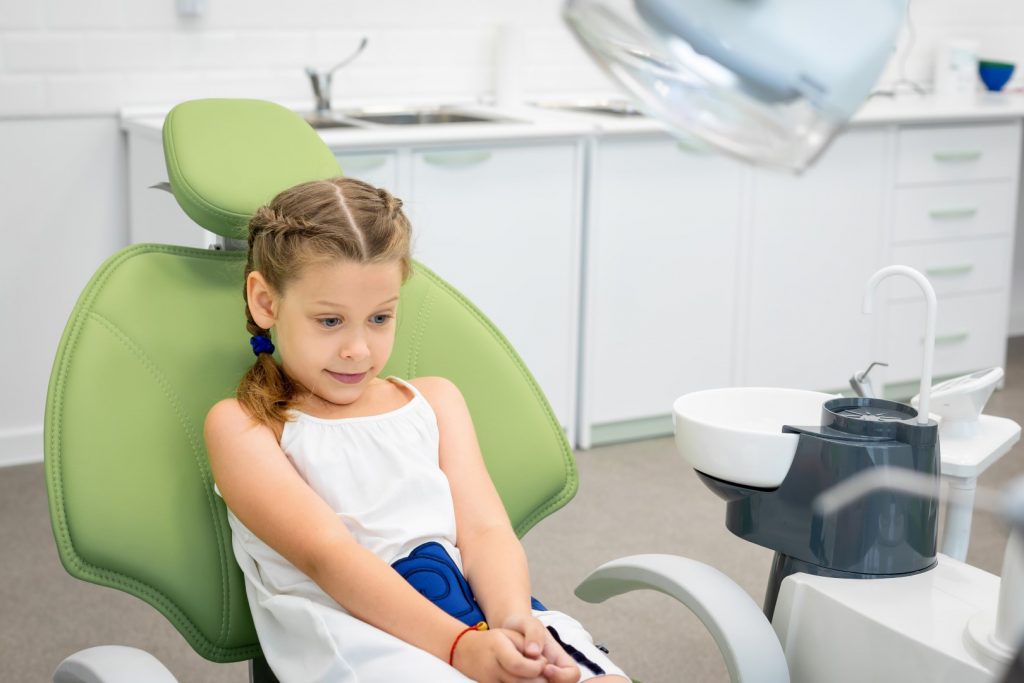Information Library
Start Reading
Knowing how to encourage and nurture good dental health for kids is one of the most important things parents and adult caregivers can do.
Dr. Joanie Jean, Assistant Professor of Clinical Pediatric Dentistry, recently answered several common questions we receive at Penn Dental Medicine (PDM) about children’s dental health.
Watch the video below. Then read on for accurate, practical information about doing the most good for the dental health of the kids in your care.

A well-balanced diet provides the nutrients children need for their healthy growth and development. It also helps them maintain healthy teeth and a healthy mouth.
The link between nutrition and dental health means children’s excessive sugar consumption is a major cause for concern. Sugary foods and drinks provide a breeding ground for bacteria in the mouth. These bacteria produce acids that attack tooth enamel, leading to the formation of cavities.
“Even 100% fruit juice contains organically occurring sugars that can cause cavities,” Dr. Jean notes. The American Academy of Pediatrics recommends children younger than 6 months old drink no juice, and that children between 1 and 6 years of age drink no more than 4-6 ounces a day. Dr. Jean advises introducing children to a wide variety of healthy foods and snacks that are low in sugar.
Setting regular meal and snack times is also important, to prevent children from grazing on food throughout the day. “The longer food and drink stays in a child’s mouth,” Dr. Jean explains, “the more chance acid can develop and damage their tooth enamel.”
 Most children start getting their baby teeth (primary teeth) at about 6 months old. Even though they aren’t permanent, baby teeth are important. Why? Because they:
Most children start getting their baby teeth (primary teeth) at about 6 months old. Even though they aren’t permanent, baby teeth are important. Why? Because they:
Untreated cavities in baby teeth can cause pain or infection that prevents children from eating and sleeping well. Both problems could have a negative impact on daily activities such as attending school. In severe cases, untreated infection can spread from baby teeth and become life-threatening.
Even before a child’s baby teeth come in, adults can help promote good dental health for their kids by gently wiping their children’s gums with a wet cloth after nursing or drinking.
As soon as the baby teeth emerge, adults should start brushing them with a soft toothbrush. Use a smear of fluoride toothpaste for children under age 3. Use a pea-sized amount for older children.
Caregivers shouldn’t put children to bed with bottles of juice or milk. “It pools around their teeth while they sleep,” explains Dr. Jean, “and puts them at a very high risk of cavities.”
Additionally, children should visit a dentist as soon as their first tooth appears, and no later than their first birthday.
When it’s time to take a child to the dentist, seek out a respected pediatric dentist.
Pediatric dentists receive an additional two years or more of formal education beyond dental school. They learn about child psychology, behavior management, and the specific dental treatments children require.
Early dental visits allow the pediatric dentist to monitor the development of the child’s teeth. They can diagnose and treat any dental issues early before they become more serious problems.
Pediatric dentistry also promotes good oral health habits and teaches children the importance of good dental hygiene.
 Children often experience dental anxiety. Dental anxiety or even dental phobia in children can make routine dental visits stressful for them and their caregivers. However, adults can do several things to help manage and ease dental anxiety in children.
Children often experience dental anxiety. Dental anxiety or even dental phobia in children can make routine dental visits stressful for them and their caregivers. However, adults can do several things to help manage and ease dental anxiety in children.
Communicating with the pediatric dentist is the first step in managing children’s dental anxiety, according to Dr. Jean. “The more we know about the child,” she explains, ”the easier it is to make the child comfortable.”
Before the dental appointment, adults should talk honestly but carefully about it with children. “Use simple, positive language and imagery,” says Dr. Jean. “Avoid words like ‘needle’ or ‘pain.’ Too many details can make children more afraid or nervous.”
Pediatric dentists can give parents and caregivers tips on having these conversations. “We’re trained to talk to children about procedures in a child-friendly way,” says Dr. Jean, “and are happy to provide you with the information you need to talk to your child.”
Children may need several dental checkups to become comfortable going to the dentist. Sticking to a schedule of regular dental care will help establish a positive relationship between children and their dentists. This relationship reduces their anxiety and fear of dental treatments in the long run.
“Positive reinforcement goes a long way toward ensuring smoother future visits,” Dr. Jean adds. “Don’t forget to let your child know they did a great job.”
To find out more about how PDM’s pediatric dentists ensure good dental health for kids, download our free Pediatric Dentistry Flyer that answers several questions.